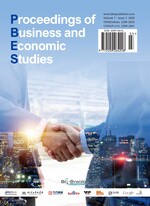Abstract
The Porter Hypothesis, proposed by Michael E. Porter, suggests that stringent environmental regulations can enhance corporate innovation and competitiveness, challenging the traditional view that regulations increase business costs. It argues that regulations motivate firms to innovate, leading to improved productivity, cost reductions, and new market opportunities. However, there are proponents and critics in academia regarding the hypothesis. Supporters claim regulations change corporate behavior, reducing agency costs and boosting research and development. Critics argue that if win-win situations exist, businesses would naturally pursue them without regulatory incentives. Key challenges in proving or refuting the hypothesis include its various versions, the difficulty in quantifying innovation and competitiveness, the complex interplay between regulation, innovation, and competitiveness, and the varying impacts across industries and regions. Additionally, the effects may require a long time to manifest, and the hypothesis’s applicability is influenced by evolving environmental policies and market environments. Despite mixed empirical findings, the Porter Hypothesis provides a valuable framework for understanding the relationships among environmental regulation, innovation, and competitiveness, but its validation requires a more comprehensive assessment.
References
Xepapadeas A, de Zeeuw A, 1999, Environmental Policy and Competitiveness: The Porter Hypothesis and the Composition of Capital. Journal of Environmental Economics and Management, 37(2): 165–182. https://doi.org/10.1006/jeem.1998.1061
Ambec S, Barla P, 2002, A Theoretical Foundation of the Porter Hypothesis. Economics Letters, 75(3): 355–360. https://doi.org/10.1016/s0165-1765(02)00005-8
Jaffe AB, Newell RG, Stavins RN, 2005, A Tale of Two Market Failures: Technology and Environmental Policy. Ecological Economics, 54(2–3): 164–174. https://doi.org/10.1016/j.ecolecon.2004.12.027
Desrochers P, 2008, Did the Invisible Hand Need a Regulatory Glove to Develop a Green Thumb? Some Historical Perspective on Market Incentives, WIN-Win Innovations and the Porter Hypothesis. Environmental and Resource Economics, 41(4): 519–539. https://doi.org/10.1007/s10640-008-9208-x
Brannlund R, 2009, Environmental Policy Without Costs? A Review of the Porter Hypothesis. International Review of Environmental and Resource Economics, 3(2): 75–117. https://doi.org/10.1561/101.00000020
Umali LC, 1998, Environmental Regulation and Innovation in Firms. Keiei To Keizai, 78(2): 65–77.
Managi S, 2004, Competitiveness and Environmental Policies for Agriculture: Testing the Porter Hypothesis. International Journal of Agricultural Resources, Governance and Ecology, 3(3/4): 310. https://doi.org/10.1504/ijarge.2004.006043
Rubashkina Y, Galeotti M, Verdolini E, 2015, Environmental Regulation and Competitiveness: Empirical Evidence on the Porter Hypothesis from European Manufacturing Sectors. Energy Policy, 83: 288–300. https://doi.org/10.1016/j.enpol.2015.02.014
Rexhauser S, Rammer C, 2014, Environmental Innovations and Firm Profitability: Unmasking the Porter Hypothesis. Environmental & Resource Economics, 57(1): 145–167.
Bitat A, 2017, Environmental Regulation and Eco-Innovation: The Porter Hypothesis Refined. Eurasian Business Review, 8(3): 299–321. https://doi.org/10.1007/s40821-017-0084-6
Lanoie P, Laurent-Lucchetti J, Johnstone N, et al., 2011, Environmental Policy, Innovation and Performance: New Insights on the Porter Hypothesis. Journal of Economics & Management Strategy, 20(3): 803–842. https://doi.org/10.1111/j.1530-9134.2011.00301.x
Chan HS, Li S, Zhang F, 2013, Firm Competitiveness and the European Union Emissions Trading Scheme. Energy Policy, 63: 1056–1064. https://doi.org/10.1016/j.enpol.2013.09.032
Hampf B, Rodseth KL, 2015, Carbon Dioxide Emission Standards for U.S. Power Plants: An Efficiency Analysis Perspective. Energy Economics, 50: 140–153. https://doi.org/10.1016/j.eneco.2015.04.001
Alpay E, Kerkvliet J, Buccola S, 2002, Productivity Growth and Environmental Regulation in Mexican and U.S. Food Manufacturing. American Journal of Agricultural Economics, 84(4): 887–901. https://doi.org/10.1111/1467-8276.00041
Cohen MA, Tubb A, 2015, The Impact of Environmental Regulation on Firm and Country Competitiveness: A Meta-Analysis of the Porter Hypothesis. SSRN Electronic Journal. https://doi.org/10.2139/ssrn.2692919
